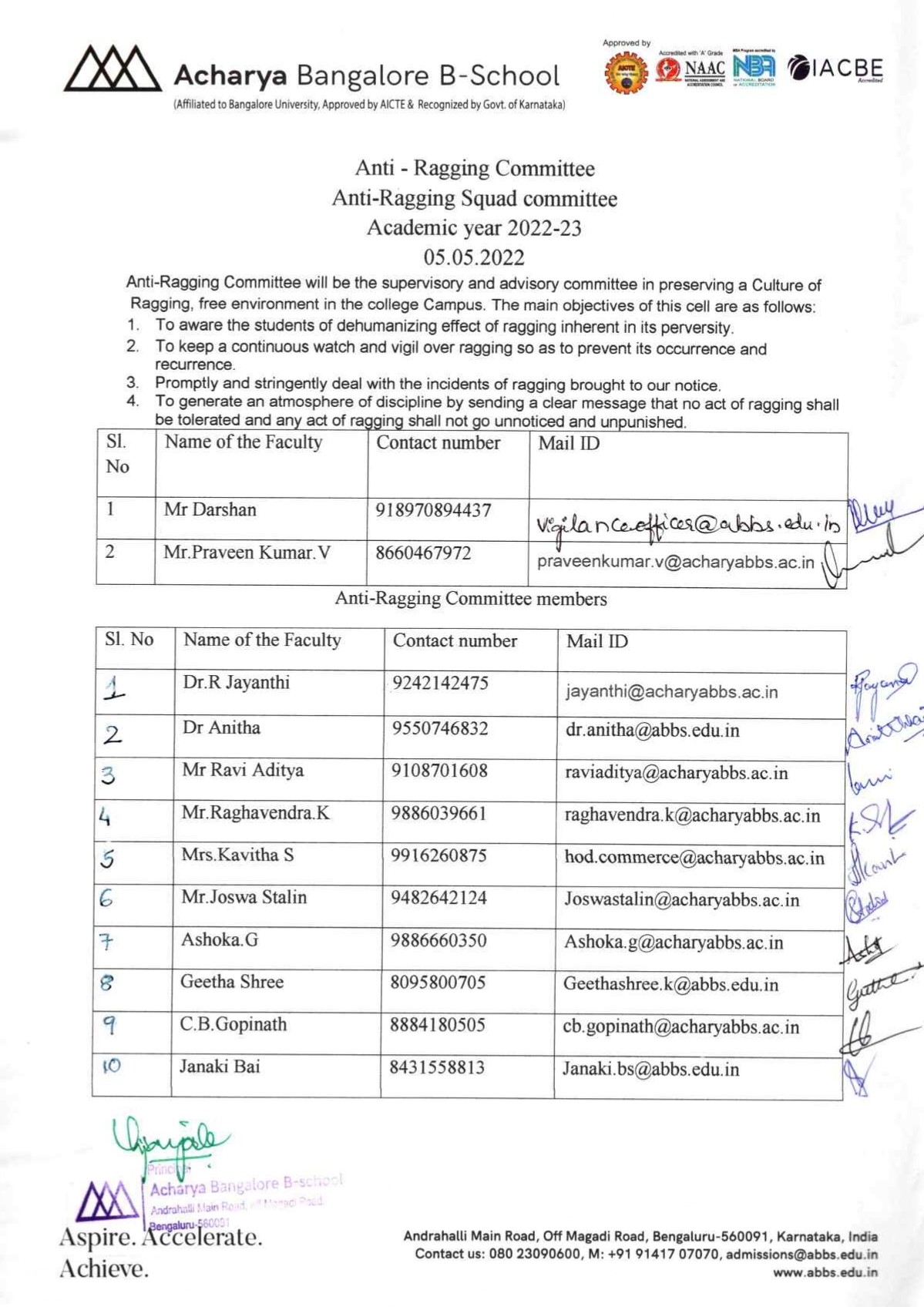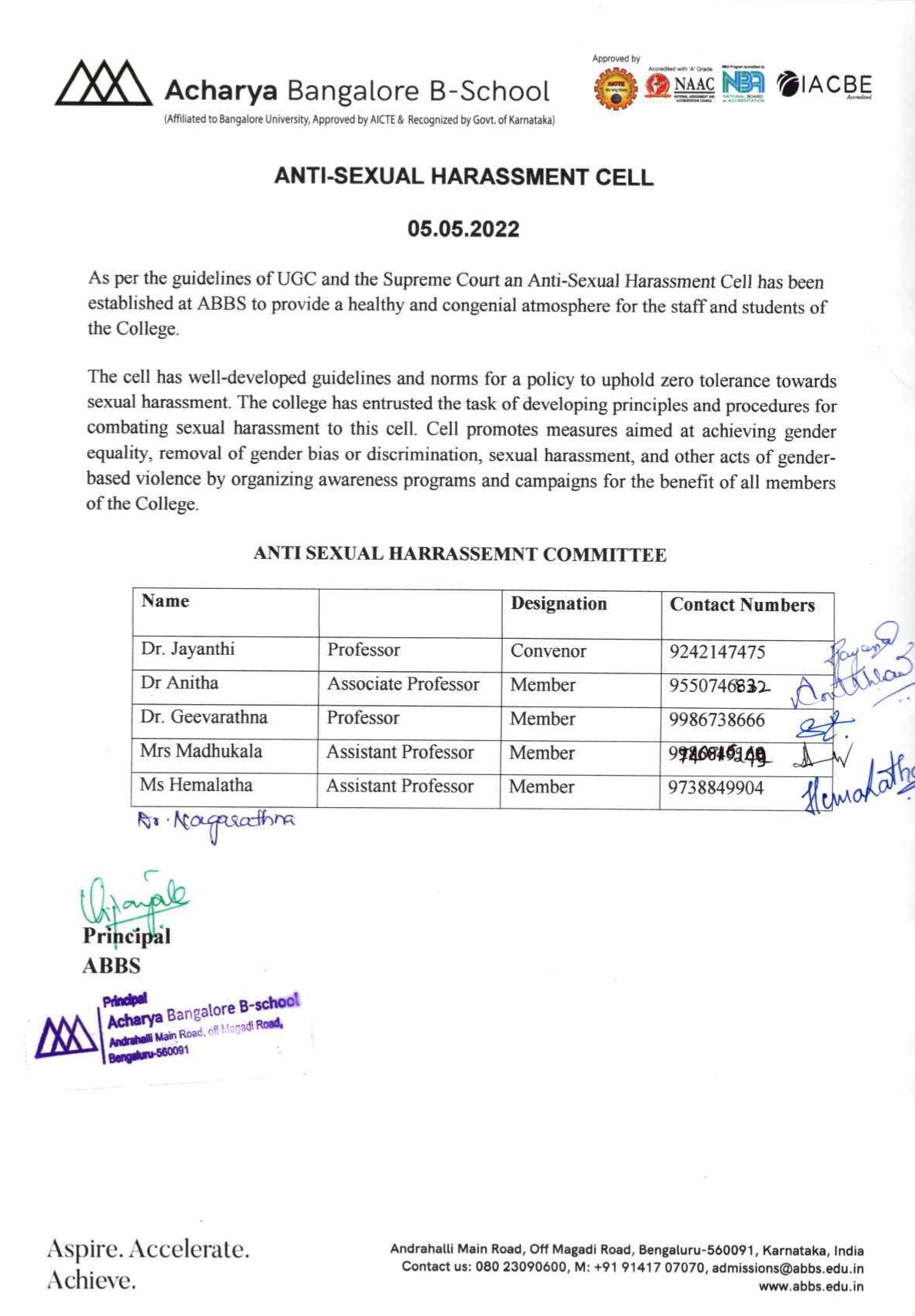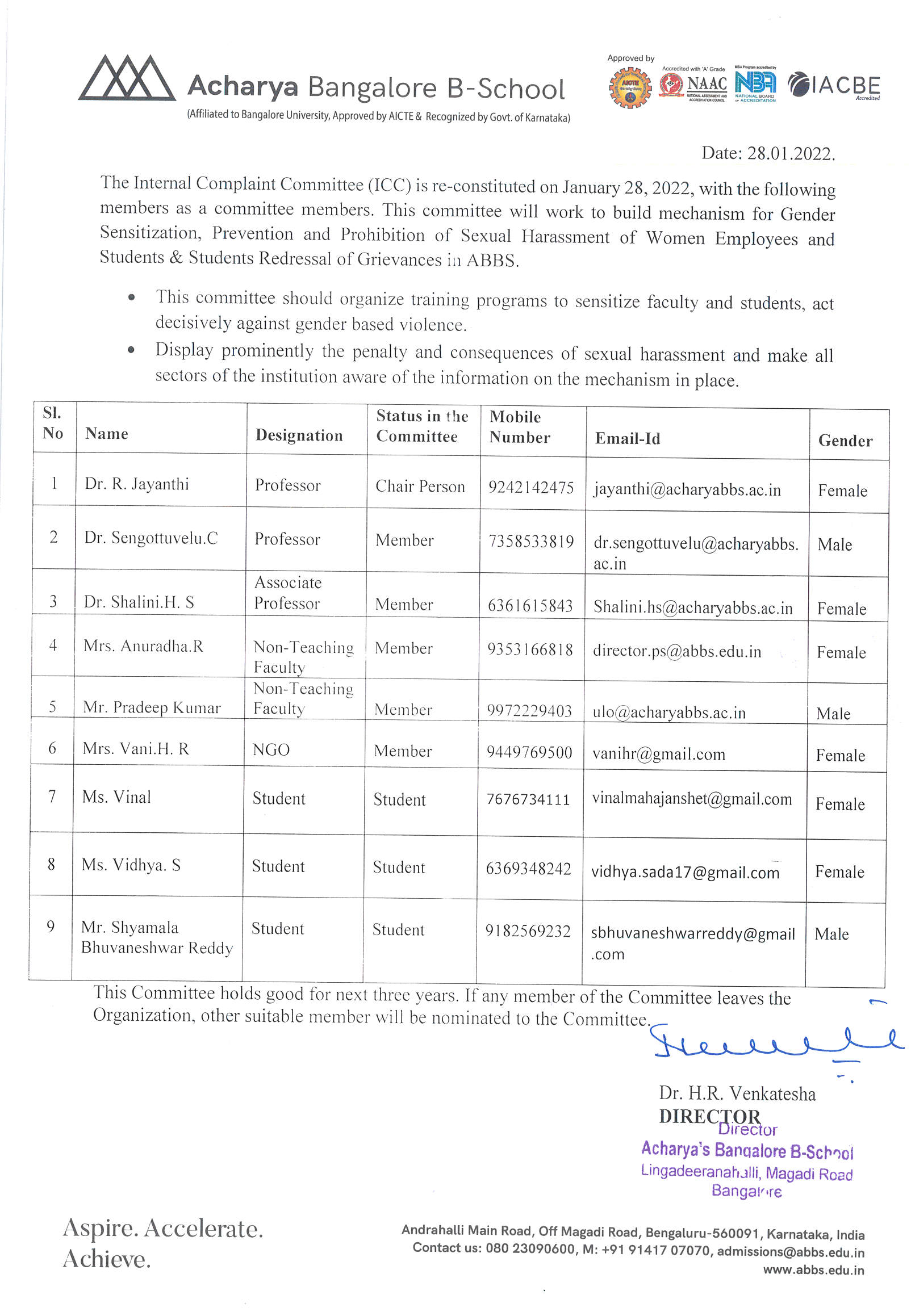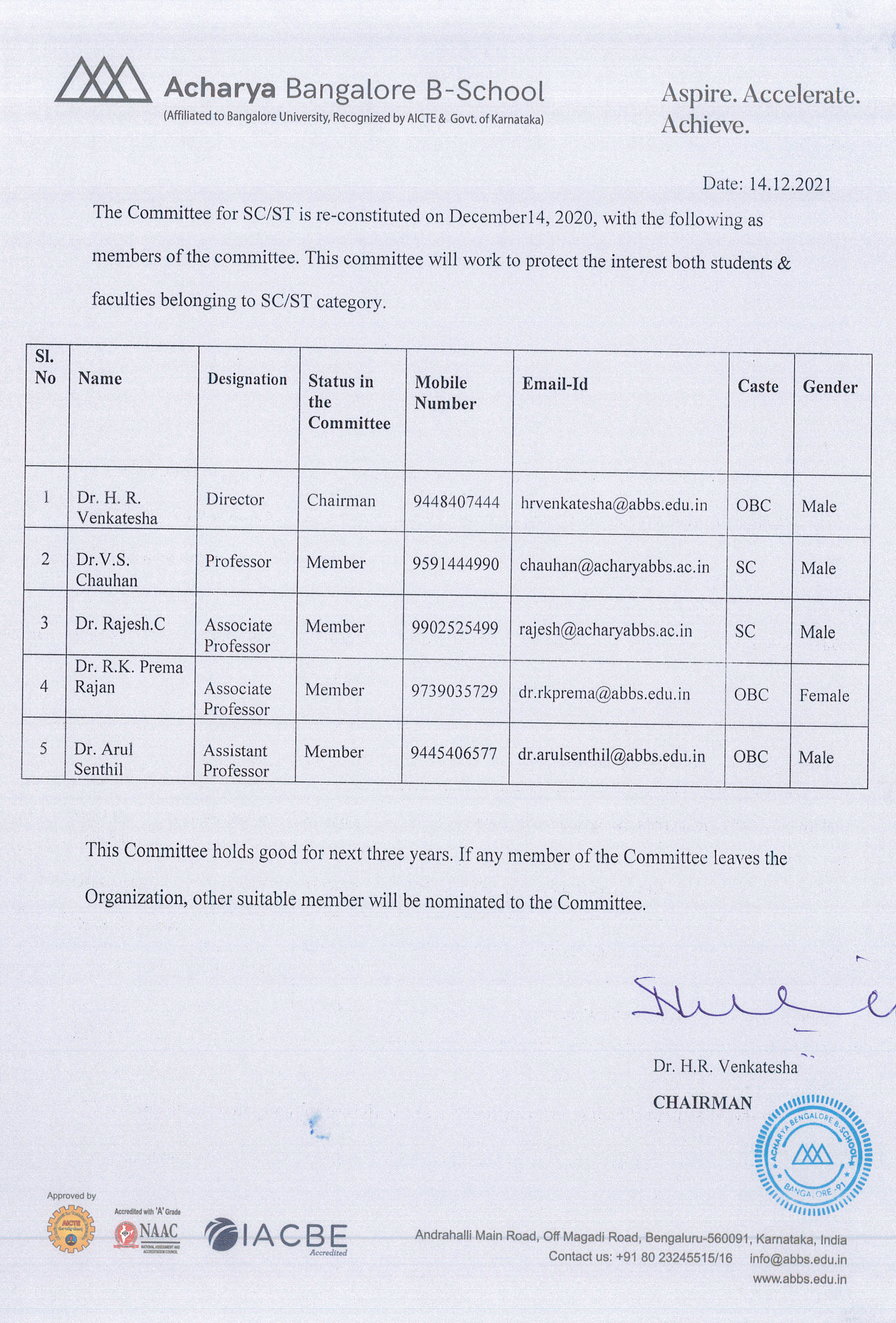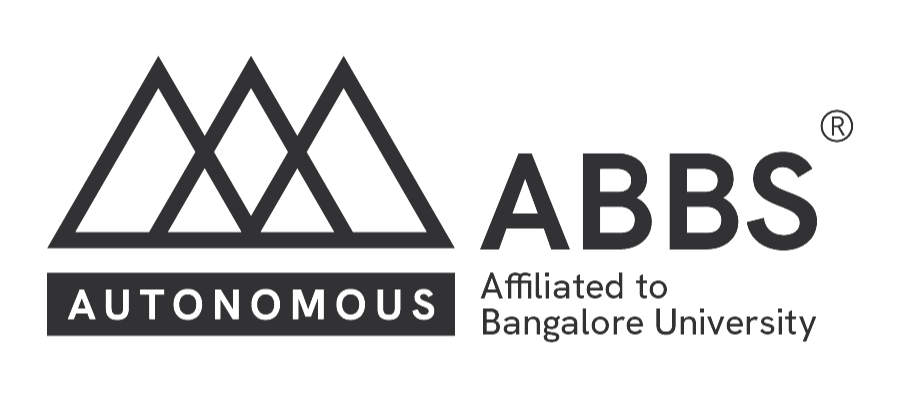For Employees
The Institution has rules and regulations regarding Employee behaviour that are necessary for the efficient operation of the Institution and for the benefit and safety of all Employees as well as Students (“Code of Conduct”). Code of Conduct that interferes with operations or that is offensive to students or co-workers or Management will not be tolerated, and will be grounds for disciplinary action, up to and including termination.
Employees are expected to conduct themselves in accordance with (but not limited to) the following guidelines:
-
Code of Conduct towards employment/service:
i. Devote entire time (working hours) and attention to discharge the duties and responsibilities.
ii. Discharge professional responsibilities according to the existing rules and adhere to procedures and methods consistent with the employment/service.
iii. Adhere to a responsible pattern of conduct and demeanour expected by the community.
iv. Manage private affairs in a manner consistent with the dignity of employment/service.
v. Strive to achieve consistent professional growth through study and research.
vi. Perform its duties towards teaching, tutorial, practical seminars, and research work conscientiously and with dedication.
vii. Co-operate and assist in carrying out functions relating to the educational responsibilities of the Institute, such as assisting in appraising applications for admission, advising and counseling students as well as assisting the conduct of examinations, including supervision, invigilation, and evaluation.
viii. Participate in extension, co-curricular and extra-curricular activities including community service.
ix. Maintain active membership of professional organizations and strive to improve education and profession.
x. Refrain from availing themselves of leave except on unavoidable grounds and as far as practicable with prior intimation, keeping in view their particular responsibility for completion of academic schedule.
xi. Avoid involvement directly or indirectly in any trade or business or a vocation or undertake any other employment.
xii. Refuse gifts, presents, payments or other such favours from students, parents, suppliers, contractors or dealers.
xiii. Refrain from criticizing the institution or office bearers of the institution or institution’s policies in any media including print and social media or making false allegations to Government authorities while working in the institution or after leaving the institution.
-
Code of Conduct towards Students:
i. Respect the right and dignity of the student in expressing his/her opinion.
ii. Deal justly and impartially with students regardless of their religion, caste, political, economic, social, and physical characteristics.
iii. Recognize the difference in aptitude and capabilities among students and strive to meet their individual needs.
iv. Encourage students to improve their attainments, develop their personalities and at the same time contribute to community welfare.
v. Inculcate among students, scientific outlook and respect for physical labour and ideals of democracy, patriotism and peace.
vi. Be affectionate to the students and not behave in a vindictive manner towards any of them for any reason.
vii. Make himself/herself available to the students even beyond the class hours and help and guide them without any remuneration or reward.
viii. Refrain from gross partiality in assessment of students, deliberately over-marking, under-marking, or attempts at victimization on any grounds.
-
Drugs and Alcohol: Employees should be in a condition to perform their duties safely and efficiently, in the interests of their fellow Employees and the public as well as themselves. Consumption of drugs and alcohol, and/or under its influence during working hours, are inconsistent with the goals of Institution. This policy applies to alcohol and to all substances such as drugs, or medication or any other substance which may be illegal, and which could impair an Employee's ability physically and/or mentally to effectively and safely perform the functions and duties of the Employee's position in the Institution. The Institution strictly prohibits the manufacture, distribution, dispensing, possession, use, and/or sale of controlled substances, including any of the following items by any individuals:
i. Illegal or unauthorized drugs (including excessive quantities of prescription drugs) and any other chemical substances that may affect an individual’s sense, responses, motor functions or alter or affect a person’s performance, judgment, reactions or senses.
ii. Prescription or over the counter drugs that may adversely influence performance or behavior when taken.
iii. Drug related paraphernalia.
iv. Alcohol or intoxicating beverages.
-
Institution and Field Procedures: Employees are expected to maintain a productive work environment that is free from harassing or disruptive activity. No form of harassment and/or discrimination will be tolerated including harassment for the following reason: race, colour, religion, creed, sex, affectional and/or sexual orientation, national origin, age, ancestry, ethnicity, disability, caregiver status, pregnancy, citizenship, alienage, marital status, partnership or civil union status, familial status, military or veteran status, genetic information, medical condition (genetic characteristics, cancer or a record or history of cancer), a typical hereditary cellular or blood trait, gender identity or expression, transgender status, gender dysphoria, status as a victim of domestic violence, status as a victim of stalking and sex offenses, or present or past history of mental disorder, mental retardation, learning disability or physical disability including, but not limited to, blindness. Special attention should be paid to prohibition of Sexual Harassment at workplace.
-
Productive Work Environment: It is the policy of the Institution to promote a productive work environment and not to tolerate verbal or physical conduct by any Employee that harasses, disrupts, or interferes with another's work performance or that creates an intimidating, offensive, or hostile environment.
-
Personal Property: Employees should refrain from bringing unnecessary or inappropriate personal property to work. Employees are expected to exercise reasonable care to safeguard personal items brought to work. The Institution is not responsible for the loss, damage, or theft of personal belongings, and Employees are advised not to carry unnecessary amounts of cash or other valuables with them when they come to work. Articles of personal property found on the Institution premises should be returned to the owner, if known, or submitted to the HR Department.
-
Use of Institution’s Equipment:
i. General: It is the policy of the Institution to provide or contract for the communication services and equipment reasonably necessary to promote the efficient conduct of its Employees. Institution equipment and property are subject to search and surveillance at all times. Employees should have no expectation of privacy in regards to the use of Institution equipment and property.
ii. Employees should exercise care so that no personal correspondence appears to be an official communication of the Institution. Personalized Institution stationery may only be issued by the Institution. Employees shall not use the Institution’s address for receiving personal mail/ postal letter/ courier or use Institution stationery or postage for personal letters.
iii. Although the Institution will attempt to deliver personal messages to Employees, it cannot and does not accept responsibility for the prompt or accurate relay of such messages.
iv. In cases where multiple violations of this policy is due to the willful intention of the Employees, which result in multiple equipment replacements, such an Employee(s) may lose their privileges to utilize Institution equipment(s), and may be subject to disciplinary action, up to and including termination.
v. Improper use of institution communication services and any equipment may result in disciplinary action.
-
Electronic Equipment’s:
i. All institution owned electronic equipment, including, but not limited to computers (desktops, laptops, netbooks, tablets, etc.), are intended primarily for teaching-related purposes.
ii. Employees should carefully maintain and care for Institution issued electronic equipment and all related accessories. Failure to do so may result in disciplinary action. All electronic equipment should be kept in good condition. If the equipment is lost, stolen, damaged, or not functioning, it must be promptly brought to the attention of the HR Department.
iii. All Institution issued electronic equipment is subject to usage monitoring. The Institution has the right to monitor and preserve any communications that use the Institution’s networks in any way, including, but not limited to, data, voicemail, telephone logs, internet use, and network traffic to determine proper use. In addition, the Institution reserves the right to, and may be required by law, to review or retain personal and Institution data.
-
Computer, Internet and Email Use:
The use of Institution’s computers, internet access, and e-mail is intended primarily for Institution and for authorized purposes. Institution’s computers and internet access may not be utilized to engage in prohibited conduct as defined hereunder, but not limited to:
i. Sending chain letters or participating in any way in the creation or transmission of unsolicited commercial e-mail that is unrelated to legitimate Institution purposes.
ii. Accessing networks, servers, drives, folders, or files to which the Employee has not been granted access or authorization from someone with the right to make such a grant.
iii. Making unauthorized copies of Institution files or other Institution data.
iv. Destroying, deleting, erasing, or concealing Institution files or other Institution data, or otherwise making such files or data unavailable or inaccessible to the Institution
v. Violating the Applicable Laws.
vi. Deliberately propagating any virus, worm, trojan horse, trap-door program code, or other code or file designed to disrupt, disable, impair, or otherwise harm either the Institution’s networks or systems or those of any other individual or entity.
vii. Sending, receiving, or accessing pornographic materials.
viii. Defeating or attempting to defeat security restrictions on Institution systems and applications.

